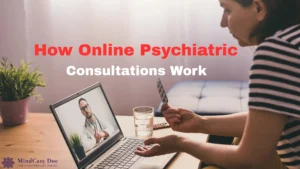Introduction
Do you ever find yourself snapping over small things or regretting words said in the heat
of the moment? Anger is a natural emotion – but when unmanaged, it can take control of
you instead of the other way around.
Uncontrolled anger can strain relationships, impact your health and reduce productivity at
work, school or home. The good news is that with anger management techniques and
simple emotional control strategies, you can learn to respond calmly and constructively.
This blog explains what anger is, why emotional control matters and the most practical
anger management tips for everyday life including when to seek professional help.
What Exactly Is Anger?
Definition
Anger is a normal emotional response to perceived threats, unfairness or frustration. It
can be helpful when it motivates us to stand up for ourselves, set boundaries or address
problems.
➢ Healthy anger: controlled, assertive and solution-oriented.
➢ Destructive anger: yelling, aggression or withdrawal that harms relationships and
well-being.
Common Symptoms
Recognizing anger early is the first step toward control.
● Physical signs: racing heartbeat, clenched fists, tense muscles, sweating.
● Emotional signs: irritability, frustration, rage or feeling out of control.
● Behavioral signs: shouting, sarcasm, giving the silent treatment or aggressive
actions.
Local Context (Kerala/Workplace/ Family)
In Kerala and similar cultural contexts, many people face:
● Workplace stress: IT professionals, healthcare workers and corporate employees
often struggle with irritability due to deadlines and long hours.
● Family/social stressors: financial strain, traffic congestion and caregiving burdens
can fuel anger.
● Cultural expectations: while society often values calmness and composure,
real-life frustrations can clash with those expectations, leading to hidden or
suppressed anger.
Why Emotional Control Matters
Physical Health Risks
Frequent unmanaged anger increases the risk of:
● High blood pressure
● Headaches and migraines
● Sleep problems
● Heart disease and stroke
Psychological & Social Impact
Uncontrolled anger can trigger:
● Stress, anxiety and depression
● Relationship conflicts with family, friends or colleagues
● Workplace difficulties and reduced career growth
Long – Term Outcomes of Emotional Control
When you develop anger management skills, you gain:
● Stronger communication abilities
● Healthier, more resilient relationships
● Improved emotional well-being and mental resilience
Strategies for Managing Anger
Recognize Early Warning Signs
Effective anger management begins with identifying the triggers and early cues.
● Spot your triggers: arguments, traffic jams, criticism, financial stress.
● Pay attention to body cues: faster heartbeat, sweating, restlessness or jaw
clenching.
Relaxation Techniques for Anger
Deep Breathing
Step away from the situation. Inhale deeply through your nose, hold for a few seconds,
then exhale slowly. Repeat until calmer.
Mindfulness & Meditation
Practice staying in the present moment without judgment. Apps, guided sessions or
simple breathing awareness can help.
Progressive Muscle Relaxation
Release muscle tension gradually from head to toe.
Reframe Negative Thinking (Cognitive Restructuring)
● Replace thoughts like “always” or “never” with more realistic ones.
● Use positive self-talk: instead of “I can’t stand this”, say “I can handle this
calmly”.
Communication Skills
Learning anger control techniques improves relationships:
● Use “I” statements (“I feel upset when..” instead of blaming).
● Practice active listening.
● Be assertive, not aggressive.
Timeout & Space
Take a break before reacting. Walk away from heated discussions and return once calm.
Physical Activity
Engage in exercise – walking, running or yoga. Physical activity releases tension and
boosts mood.
Problem-Solving Approach
● Identify the root cause of anger (stress, unmet needs, unrealistic expectations).
● Work on long-term solutions.
Lifestyle Adjustments
● Maintain good sleep habits and eat balanced meals.
● Reduce alcohol and caffeine intake.
● Create a relaxing bedtime routine.
Treatment & Professional Support
When to Seek Help
You may need professional guidance if:
● Anger feels uncontrollable or frequent.
● It damages relationships, work or self.
● It is linked with anxiety, depression or violence.
Therapy Options
Cognitive Behavioral Therapy (CBT)
Helps identify thought patterns and provides coping strategies.
Anger Management Programmes
Structured courses that teach anger management exercises and long-term coping
methods.
Online/Clinic Counselling in Kerala
At MindcareDoc clinics in Kochi, Trivandrum and Alappuzha, sessions are available in
both Malayalam and English. Online counselling is also accessible for convenience.
Practical Everyday Tips
Journaling
Track triggers, emotions and responses. Over time, you’ll identify patterns and gain
self-awareness
Humor & Positivity
Use humor to lighten tense moments – without sarcasm, which can backfire.
Gratitude Practices
Daily reflection on things you are grateful for, shifts focus away from frustration.
Safety & Relationships
At Work
● Use short breaks to cool down.
● Practice emotional management techniques during high-stress meetings.
At Home
● Set family rules for handling conflicts calmly.
● Model anger management skills for children, teaching them healthier responses.
When Anger Becomes Dangerous
Red Flags
● Physical violence or threats
● Self-harm thoughts
● Reliance on alcohol or substances as coping
In such cases, seek immediate professional intervention or emergency support.
Conclusion
Anger doesn’t have to control your life. With the right anger management techniques –
from deep breathing and mindfulness to CBT and structured programs – you can turn
anger into a signal for positive change.
Book an Anger & Stress Counselling session at MindcareDoc (in-person in Kochi,
Trivandrum, Alappuzha or online in Malayalam/ English). Our team offers CBT,
relaxation techniques for anger and personalized lifestyle plans to help you regain
control.






